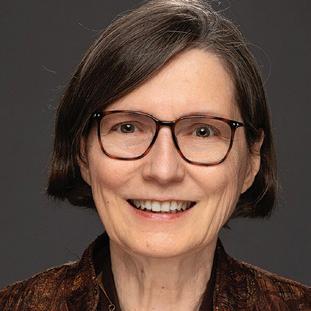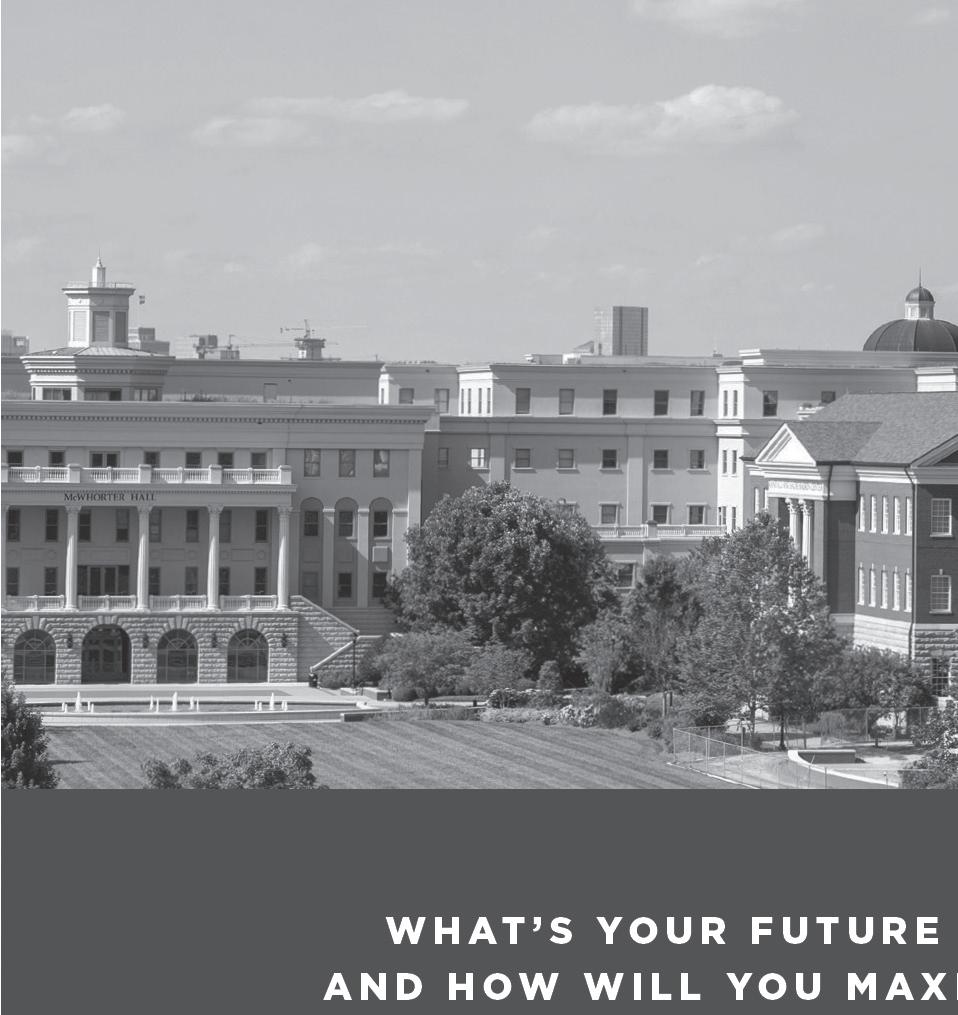


























































Dr. Beth Shinn talks


Contributor vendors

Any vendor of The Contributor can accept VENMO as payment. Technology is a barrier to those experiencing homelessness. Many of our vendors don’t have phones or bank accounts, or use online commerce. Thus we simplified the VENMO process by using one account for all vendors. This means YOU MUST IDENTIFY YOUR VENDOR when using VENMO. Here is the skinny on how to do it right.
#1 You must have a VENMO account. Sign up at www.venmo.com if you haven’t already.
#2 SCAN THE SQUARE QR CODE in the top left corner of the cover of this paper using your phone or tablet camera. Then press the button that appears once it has been recognized.
#3 CLICK the blue “Pay or Request” button on the screen with The Contributor yellow and black logo.
#4 TYPE in the amount you wish to pay. The paper costs $2. Tips are welcomed. Vendors get all the money you send and can pick it up the next business day at our o ice.
#5 Most importantly, TYPE YOUR VENDOR’S NAME AND BADGE # in the “What’s this for?” box. Then hit the PAY button. Their name and 4 digit badge # should be written on the front cover of the paper below the QR code. You must
identify them to insure they will get the money. First name, last initial and 4 digit badge # will ensure that a vendor with a similar name doesn’t get confused for your vendor. You can also leave feedback in this field. But always identify the vendor. If they didn’t write their name or badge # on the cover of this paper, please describe where they were and what they looked like. This usually can identify them.
#6 HIT THE PAY BUTTON.
#7 The FIRST TIME you pay anyone using VENMO you will be asked to enter the last 4 digits of their phone number. Type 6829 in this field. Our phone number is (615) 829-6829. Or, you can scroll down and skip this step. (VENMO wants to protect you from sending money to the wrong person with a similar name. The next time you pay a vendor using our account, you won’t be asked to verify again.)
#8 ALWAYS TAKE THE PAPER HOME WITH YOU. When vendors sell out, the satisfaction of having a business that sells out its products begins to sink in! Vendors who sell out, come back to our o ice to buy more. This helps our vendors meet their sales goals. And, it is there that we can meet with them, give them their VENMO payments or mail and work on solving their barriers to housing and life’s goals.
#9 Friend us on VENMO and leave feedback. Open the app and click on “Me” at the bottom. Then select “Transactions” to see your payments. Click on the payment to The Contributor in your transaction list and then click on our icon at the top of the screen to see all of those transactions between us. On this page you can “Friend” us and click on the speech bubble icons of all your payments to leave feedback on your experience. Constructive feedback and praise help encourage our vendors to do their best.








Dennis T. knows there are plenty of untold stories in Nashville. Some of them are his own, some of them belong to the many unhoused people he’s met while living on the streets since moving here from Clarksville. And each word unsaid contributes to an unreached understanding between the wealthy and the homeless.
Assumptions shape a person’s reality, Dennis said, and most people are conditioned to assume much about the homeless, the poor, felons, the mentally ill, and so on. But assumptions can be challenged.
“I want to subtly incorporate a message to the homeless, don’t become the stereotype people think we are, and to the ones that actually aren’t homeless, don’t succumb to believing the stereotype that they’ve been conditioned with,” he said. “People that are kind of narrow-minded and look down on people aren’t necessarily trying to be evil or hateful, they’re just under the impression that, oh, this person’s evil or this person’s dangerous; they don’t necessarily understand [that person’s] perspective.”
“Using the platform of comics strips or any kind of entertainment, you have the ability — even with fictional characters — to make [the reader] relate to the characters.”
His most recent comic from the May 25 issue of The Conbtributor features a woman
BY JUSTIN WAGNERwho encounters a homeless man by an ATM on Lower Broadway, flees and reports him to a nearby cop — in her panic, she drops her money, which the homeless man returns.
“At no point did I try to portray anyone as the bad guy in the situation. There’s not really a long list of characters in the issue; it’s just the homeless guy, the lady and the cop,” Dennis said. “But to me it encompassed, well, not all sides, but a good three of the sides that are there … there’s a representation of the elite class, the law enforcement, and the homeless guy. Ultimately, it’s all a misunderstanding. If there’s an antagonist in that issue, it would be the ignorance of the characters and not the characters at all.”
In subverting the more privileged characters’ assumptions and giving the homeless perspective a face and voice, Dennis hopes to lay the groundwork for more complex discussions in future comics.
“I want to introduce a lot of character development … I want to make a comic strip that even if a person misses an issue or something like that, they can pick it up and say ‘this is an interesting piece of artwork, it has a cohesive storyline, it has cohesive characters.’ Everyone who picks it up will be able to get something out of it,” he said.
“Some people say, ‘oh, well it’s just a homeless paper.’ To me, it’s still serious. I have
enough respect for The Contributor by itself, and enough respect for my comics by themselves, and my talent by itself, to take all three really seriously.”
It’s been Dennis’ dream to create comics ever since he was 13. Growing up in Detroit, he experienced neglect and ostracization due to his struggles with mental health. He found solace — and inspiration — reading about the exploits of Marvel’s X-Men.
X-Men comics star a class of super-powered mutant characters, both good and evil, who struggle to find a place in the world, prejudice hanging over their heads as a result of their altered appearance and abilities. Dennis finds the most compelling stories explore the space between right and wrong, trying to bridge the gap between groups in conflict.
“It’s a very gray area, as far as who’s right, who’s wrong, why people are doing what they’re doing, even when it seems like someone’s doing something very terrible,” Dennis explained. “It kind of pulled from what was going on in real life … I’ve always thought that was very inspiring, as well as very entertaining, because you have these different threads. Even though they’re fighting, they’re still connected. I noticed the same thing when I was younger as a psych patient.”
Dennis’ ambitions to recreate that spark he found in X-Men comics persist today. Out-
side of his work with The Contributor, he plans to publish his own comics based on the very first ones he drew in his youth.
“My original comic strip was loosely based on myself and a couple of friends, that’s a team of people that are advocates-slash-vigilantes for the mentally ill. When the system fails the mentally ill, the five of us would step in and bring some sort of justice to the situation,” he said. “I’m waiting until I have at least three full-size issues ready to sell. Then I’m going to make copies and sell them on eBay … it’s a way to, until I get established, to actually introduce people to my work.”
Though life on the streets remains difficult and myths can’t be dispelled overnight, Dennis is hopeful that his comics will help move the conversation in a positive direction.
“They don’t get it because their only exposure to the homeless world is the completely one-sided media,” he said. “I want for people to not only relate to their type of character, but maybe the other characters in a different way, too.”
“The Contributor” está trabajando con uno de los principales periódicos en español La Noticia para llevar contenido a más lectores en Middle Tennessee. Nuestros vendedores de periódicos han pedido durante mucho tiempo que nuestra publicación incluya contenido que apele al interés de residentes de habla hispana en nuestra comunidad.
“The Contributor” is working with one of the leading Spanish-language newspapers La Noticia to bring content to more readers in Middle Tennessee. Our newspaper vendors have long requested that our publication include content that appeals to the interest of Spanish-speaking residents in our community.

¿Alguna vez imaginó que en un pais tan avanzado como los Estados Unidos de Norteamerica existiera la posibilidad de carecer de suficientes profesionales de la salud y el correspondiente acceso a los servicos?

Sally C. Pipes (@sallypipes), Presidenta, CEO y Thomas W. Smith Fellow en Políticas de Salud en el Instituto de Investigación del Pacífico, a continuación nos explica:
“Conseguir una cita médica será difícil en la próxima década, según nuevos datos de la Asociación de Facultades de Medicina de Estados Unidos. Para 2036, la organización estima que Estados Unidos tendrá una escasez de hasta 86,000 médicos.
Esto no es solo una escasez de médicos, sino de atención médica. En la mayoría de los sectores de la economía, las escaseces indican a los proveedores que es hora de aumentar la producción. Pero la regulación gubernamental ha restringido artificialmente el suministro de atención médica durante años.
Debemos relajar esas regulaciones para aumentar el suministro de atención médica y satisfacer las necesidades de los pacientes.
Hay muchos profesionales de la salud que pueden ayudar a abordar esta escasez de atención médica, si se les permite hacerlo. Los enfermeros practicantes y los asistentes médicos pasan años en formación y práctica clínica para calificarse. Pueden diagnosticar y tratar pacientes, incluyendo la prescripción de medicamentos. En este


momento, hay alrededor de 280,000 enfermeros practicantes y 126,000 asistentes médicos en Estados Unidos.
En muchas áreas, las leyes de "alcance de práctica" impiden que estos profesionales practiquen al máximo de su capacitación. Casi la mitad de los estados tienen leyes que limitan la capacidad de los enfermeros practicantes para ejercer.
Los defensores de estas reglas argumentan que permitir que los enfermeros practicantes y los asistentes médicos practiquen sin restricciones pondría en riesgo a los pacientes. Sin embargo, la investigación muestra lo contrario.
Un estudio de investigadores de la Universidad de Nueva York y Boston College concluyó que "las regulaciones estatales que restringen [el alcance de práctica de los enfermeros practicantes] no mejoran la calidad de la
¿Que hacer en caso de una redada?
1. Mantenerse callado
2. Sólo dar nombre y apellido
3. No mentir
4. Nunca acepte/lleve documentos falsos
5. No revelar su situación migratoria
6. No llevar documentación de otro país
7. En caso de ser arrestado, mostrarla Tarjeta Miranda (llámenos si necesita una)
Basados en la Quinta Enmienda de la Constitución, los derechos de guardar silencio y contar con un abogado fueron denominados Derechos Miranda luego de la decisión de la Suprema Corte de Justicia de Estados Unidos en el caso Miranda vs. Arizona, 384 U.S. 436, de 1966.

atención". Un estudio de la Universidad de Florida Central encontró que ampliar el alcance de práctica de las enfermeras puede mejorar la calidad de la atención.
Y según un estudio de 2023 de la Facultad de Derecho de la Universidad de Alabama, durante un período de 14 años, la ampliación del alcance de práctica para los enfermeros practicantes y los asistentes médicos redujo las muertes relacionadas con la atención médica, en 12 por cada 100,000 personas y 10 por cada 100,000 personas, respectivamente. Las áreas rurales, que tienden a tener las mayores escaseces de atención primaria, vieron incluso mayores mejoras.
Claramente es hora de que los estados eliminen las reglas de alcance de práctica.
Otra forma de expandir el suministro de atención médica es facilitar que los
graduados de medicina internacionales practiquen en Estados Unidos.
La investigación muestra que los médicos con títulos de escuelas de medicina internacionales brindan atención de alta calidad. Según un estudio publicado en el BMJ, los pacientes de Medicare atendidos por internistas formados internacionalmente tuvieron una menor mortalidad que los pacientes atendidos por graduados de medicina de Estados Unidos.
Los médicos que obtienen sus títulos en el extranjero a menudo enfrentan requisitos estrictos para obtener licencias médicas en Estados Unidos. Primero, deben completar dos o tres años de educación médica de posgrado en Estados Unidos. Luego deben tomar el Examen de Licenciamiento Médico de Estados Unidos, solicitar una residencia y obtener una licencia médica estatal. El proceso puede llevar años.
No es de extrañar que algunos médicos que se mudan a Estados Unidos busquen carreras en otros campos. Una encuesta reciente de casi 300 médicos inmigrantes reveló que dos de cada tres con trabajos no estaban trabajando como médicos.
Tennessee recientemente eliminó el requisito de que todos los graduados internacionales completen residencias en Estados Unidos. Otros estados deberían considerar seguir su ejemplo. La demanda de atención médica solo aumentará en los próximos años, a medida que la población de Estados Unidos envejezca. Satisfacer esa demanda requerirá eliminar las regulaciones que han restringido durante mucho tiempo el suministro de atención.
Envíenos sus sugerencias por e-mail: news@hispanicpaper.com ó 615-567-3569
Cuestionario: Contratos con el sector público y privado para pequeñas empresas propiedad de hispanos y minorías


When Prentice Cooper, a bachelor, was governor of Tennessee in the early 1940s, he took his future bride, Hortence, for a boat ride on the Duck River which flows through his hometown of Shelbyville. Later their sons, Jim, John and William, grew up enjoying the river.
In the summer 2024 edition of Where the Waters Meet, the magazine of The Harpeth Conservancy, I read that the Duck was named one of the most endangered rivers in America By American Rivers. Th is 284mile long stream crosses fast-growing Middle Tennessee from east to west and, “is home to
22 aquatic snail species, 56 mussel species, including the salamander mussel, and 151 fish species, including a few with viable populations found only in this river.”
The Duck also, “provides a critical water source for more than 250,000 people and more than 150,000 people recreate on and around the Duck River watershed.”
We are fortunate that this river, one of the most biodiverse rivers on Earth, is being protected by American Rivers, the U.S Fish and Wildlife Service, and the Harpeth Conservancy.
NATIONAL POOR PEOPLES MARCH IN WASHINGTON JUNE 29







In recent months, the National Alliance to End Homelessness (NAEH) published a series of reports and articles on the needs of the people working in the homelessness sector.
In September, NAEH reported that it would take an estimated $4.8 billion in salary funds to adequately pay the homelessness sector workforce. Specifically, the average salary of an employee working to assist with permanent housing is $42,912 per year and the average pay for an emergency shelter staff is $27,830. In other words, they do not make enough money to pay for the average rent of a one-bedroom apartment in the communities they serve.
We all know that the country is experiencing an affordable housing crisis. We all know that the country has a homelessness crisis as a result of a lack of access to low-income housing. But what we sometimes forget is how the very workers who we expect to assist individuals and families in a housing crisis too often experience a housing crisis themselves.
I recall more than one conversation with a frontline worker where the case manager told me that they struggled with helping a particular family. The conversation went something like this, “Judy, I understand that this family has barriers to access housing, and I am happy to help them. But it’s hard when I see their income is way more than I make.”
NAEH published a follow up report in December based on a survey with a little over 5,000 staff members across the nation. About half of the respondents were frontline staff, the rest were managers, office staff and others. Exactly 50 percent of respondents said they worked for a permanent housing program (27 percent) or an emergency shelter/ transitional housing program (23 percent). The rest worked for Street Outreach Programs, CoC Lead Agencies, Coordinated Entry Access Points, Drop-In Centers, Service Provider Agencies or similar organizations.
The report largely confirmed what many of us knew anecdotally, but these specific data points allow for better advocacy with government and private funders including politicians to raise the question: can we effectively end homelessness if we do not invest in people, including the workforce we expect to implement our policies and best-practice solutions?
These are the major findings of the report, pulled directly from the source:
1. A Mission-Driven Workforce. Much of the workforce cites altruistic reasons for choosing and liking their profession. In total, 87 percent valued doing worthwhile work.
2. Staffing Challenges. Among respondents, 74 percent said that their agencies/ organizations were understaffed, while 71 percent reported that their agencies/organizations experienced high employee turnover.
3. Overwhelming Work Environments. Homeless services personnel experience sig-
nificant stress rooted in not being able to help enough people (69 percent). They also feel overworked (46 percent).
4. Personal Sacrifices. The workforce is overwhelmingly impacted by low salaries, leading to financial difficulties: they worry about paying for wants like vacations (54 percent) but also needs such as housing (44 percent).
5. Harms to Service Delivery. Employees indicate that workforce challenges translate into cutbacks in services and clients not fully getting the help they need.
Most frontline staff work in the homelessness sector because they care, and the work is meaningful to them. However, low wages and high turnover rates often have a tendency to create an unsustainable, disgruntled workforce. Couple that with a challenging work environment where you encounter people in crisis on a daily basis, and you will understand that secondary trauma becomes very real, very fast.
We often have training sessions that frontline staff in this survey reported they have to fight to get into. Thus, they feel, at times, underequipped or insecure to do their jobs at the highest possible level.
Another thing that stood out clearly to me is that when people feel they are in a toxic environment, especially when it’s caused by a manager, top leaders often do not have the flexibility to address the situation appropriately because the organization is already understaffed.
One example I observed here in Nashville was in a scenario when the local government pushed for encampment closures. Consequently, programs were funded quickly, but not given appropriate time to hire and fully train people to implement best-practice solutions before some of the most vulnerable people who had been living outdoors for years were brought into a new program with brand new, underequipped staff. The workforce quickly felt overwhelmed. High turnover resulted, and the program was criticized even though it would have been the correct intervention if implemented in an appropriate manner.
This indicates that solutions to support staff need to be supported by funders and policy makers. Rather than caving under the pressure of the loudest NIMBY (Not In My Backyard) voices, it is imperative that we listen to the frontline staff just as we need to listen more to the people we are wanting to assist.
Fully and adequately funding the workforce is step number one. Providing adequate time and means to train staff, so that they feel equipped to implement programs that are actually helpful to individuals and families is another minimal requirement.
Higher pay will also lead to higher retention rates, which then helps ensure that staff members are not constantly on call or required to do overtime. These are commonsense approaches that go far to ensure

Source: Working in Homelessness Services: A Survey of the Field. From the Homelessness Research Institute of the National Alliance to End Homelessness. Written by Joy Moses, Vice President of Research and Evidence. Published on Dec. 5, 2023
that service quality is at an elevated level.
In the most recent report published in May 2024, NAEH focused on street outreach workers. We often underestimate the importance of street outreach. The key to successful engagement is building trusting relationships. Yet, 60 percent of the street outreach workforce (just under 700 survey respondents) reported that they have five years of or less experience in the homelessness sector. This indicates that street outreach is an entry-level position.
The most effective solution to homelessness starts with engagement at the front door and street outreach is one of the most important ways where people build trusting relationships. Considering that there is a political focus on encampments (nationwide, not only in Nashville), governments and private funders should consider ensuring that the workforce is adequately compensated. For one, every time staff changes, a person is requested to repeat their story, likely asked to do yet another assessment, and the rela-
tionship building starts from scratch.
Would you be comfortable if an organization sent different staff every six months to work with you on housing — and honestly, you know more about the process (and what does not work) than the new employee who clearly is not fully trained yet?
That’s what reality often looks like. The willingness and caring of the frontline workforce need to be rewarded. Rather than investing in more and more bureaucracy, let’s shift the focus to invest in the people on all fronts. That’s when we’ll see theoretical approaches and policies turn into actual solutions.
After all, It’s not just about placing more people into housing. It is about assisting people in a long-term manner and that is done by a trained, qualified, and supported workforce.
To read the full series of articles visit https://endhomelessness.org/what-thehomeless-services-workforce-needs-to-endhomelessness/














Shinn talks about years of gathering information on what works to keep people housed
Dr. Beth Shinn is one of the leading national researchers on homelessness and has been working on studied interventions and solutions for more than three decades.
After 16 years teaching at Vanderbilt University, she is preparing to transition to be a research professor. During her time at Vanderbilt, Shinn also helped develop a screening tool so that the Vanderbilt Emergency Department has the ability to determine people’s housing status and refer people with a lack of housing to social workers. In 2020, Shinn published “In the Midst of Plenty: Homelessness and What to Do About It,” an in-depth gathering of solutions in the sphere collected during her extensive research.
“I’m still excited about the research,” Shinn said. “I’m doing a study right now in New York City on unconditional cash transfer to try to help families with babies get out of New York City shelters.”
As Shinn moves away from teaching, she spoke with The Contributor about the issues facing Nashville and the United States when it comes to solving homelessness.
“We have the research that shows us what to do for different groups — there are different solutions for different groups,” Shinn says. “And as a country, we have resources. It's a question of where we allocate [them]. It's a question of political will.”
What are the biggest misconceptions people still have regarding homelessness?
The single biggest misconception people have is that folks want to be homeless. That it's a choice.
But that depends on what is on offer. So, if what is on offer is a congregate shelter that kicks you out during the day, where you can't stay with your loved ones or your beloved pet, where you can't bring your belongings, then there are people who will say, “I would rather stay outside.”
But if what is on offer is an apartment, even a very modest apartment, even a hotel room, where you have a little privacy, where you can live with the people that you want
BY JUDITH TACKETT
to live with, where you can have your pet, where you can control your life, pretty much everybody that I have talked to, who was outside, would jump at that chance.
A second big misconception is that people bring homelessness on themselves by their own actions. Study after study has shown that rates of homelessness across cities are highly associated with rents. Higher rents lead to higher levels of homelessness.
There are people who make bad choices all over, but it's hard to believe that places with high rents have more people with bad choices. It’s the rents that drive rates of homelessness.
Now, if there aren't enough housing units to go around or there aren't enough housing units that are affordable. People who are most vulnerable in various ways are going to lose out. Sometimes people make an analogy to the game of musical chairs. If there aren't enough chairs when the music stops, somebody's going to be left standing, and the person left standing is the person who is a little slower, who can't reach the chair in time. So, somebody who has a mental illness or a substance use disorder may not be able to reach the chair. But when housing is abundant and when housing is affordable, everyone can be housed.
You have done research on prevention. Are we doing enough in regard to prevention of homelessness as a nation and if not, what are some low-hanging fruits that cities like Nashville should consider?
There are two ways to think about prevention. One is about stopping generating homelessness. Our homeless service system houses a lot of people, but we keep generating more. To stop generating so much homelessness, we need to have more affordable housing. And by affordable housing, I mean housing that is affordable to people with very low incomes below 30 percent of the Area Median Income (AMI).
But there are also some targeted prevention programs that can be helpful for populations that are at very high risk. And two populations that are at very high risk are young people who age out of foster care and folks who are leaving prisons and jails. We don't expect middle class kids to make it on their own when they turn 18 or they turn 21, their parents subsidized their housing and college dormitories. They get their room back or they can stay at home with their parents until they can make it on their own. Kids who are aging out of foster care don't have those resources. So, they're a very high risk group.
Folks who get out of prison with nothing if they can't go back to family, have a very hard time breaking into the housing market and getting a job that will support them in the short term. And so, they're very likely to become homeless.
Those are two groups that are very high risk and that we could do a lot to help.
You were the lead researcher on the Family Options Study released by the U.S. Department of Housing and Urban Development (HUD). What are some key findings in regard to family homelessness?
In that study we recruited over 2,200 families from homeless shelters in 12 sites around the United States. We used a lottery to give them access to different housing and service interventions to end homelessness.

We looked at what happened over the next three years.
What we found is that giving people access to long-term housing subsidies — typically in the form of Housing Choice Vouchers, sometimes called Section 8 — that held their housing costs to 30 percent of incomes not only ended homelessness and all other forms of residential instability that we looked at, but also had radiating benefits for other aspects of family life. Access to vouchers reduced substance use, reduced domestic violence, reduced psychological distress, reduced food insecurity.
Things that can sometimes cause homelessness were reduced when families simply had access to housing that was affordable. Kids' school attendance improved. Their behavior improved. There were fewer instances of separation of children from their parents. These enormous, radiating benefits [resulted] simply from giving folks access to affordable housing. Now that’s families. That's not folks with serious mental illnesses. But the families didn't get any other specialized services. They could use whatever services were available in their community. The only intervention that was provided was access to these housing subsidies.
I understand there is a follow-up to the Family Options Study underway. What is the purpose, and when do you think you’ll have preliminary results from that?
We’re very excited about that. I’m no longer in the lead [on that project]. It’s 12 years later, and we're very excited to find out what happened to the families and whether your family having a housing subsidy when you're a child, put you on a different trajectory into adulthood.
We just got out of the field. Meaning we just finished the interviews. We are making sure that there are no errors in the data and so forth before we go on to analysis. It'll probably be a year before the findings come out. But we're very excited about learning about how long the effects last and what happens to the households that didn't get any special intervention.
Is homelessness solvable and why do you or don’t you believe so?
It's definitely solvable if we're willing to put in the resources.
We have cut homelessness among military veterans by more than half since 2010 because we put in the resources. The Department of Housing and Urban Development put in housing resources. The Department of Veterans Affairs put in service resources. We worked with prevention. We have worked with different kinds of housing resources. The mayors responded to a Mayor's Challenge in the Obama Administration to give priority to veterans, and it worked.
Most of the decrease happened during the first six or so years after 2010. It's slowed
a little bit recently, but we keep generating more homelessness among veterans and among everybody else, which is why we haven't gotten even lower.
Finland has essentially ended homelessness as we define it. They have a broader definition than we do, so they haven't met their own goals. Most European countries have lower levels of homelessness than we do because they have a better social safety net. And we could end homelessness here if we were willing to put in the resources.
We’ve seen articles popping up that say the Housing First approach does not work. What is your opinion?
Well, the research shows that the Pathways to Housing model of Housing First works.
When Sam Tsemberis first developed the Pathways to Housing First model in New York and I was involved in one of the early evaluations, he called it the Consumer Preference Independent Living Model. That doesn't come as trippingly off the tongue as Housing First. The idea was consumer preference is what people wanted. It was upfront. [Also] housing should be independent. So if people want to live in sober housing, great! But they shouldn't be forced into sober housing if that's not what they want. If they want to live with other people of their own choosing, great. But they shouldn't be forced to have roommates not of their
choosing if they don't want to. The idea is, you lead with what people want and what will help them to accomplish their goals and that leads both to sustained housing and in many cases recovery.
The problem is that everything gets called Housing First, whether or not it adheres to that model. The key features of that model are first, giving people access to affordable housing with wrap-around services that they control. So, the access to housing is without prerequisites for sobriety or participation in treatment and extensive services are available. That can include medical and substance and psychiatric services and vocational and recreational services, but only those services that people choose. Because services work better when people choose them than when they're foisted on folks. That model that foregrounds choices by the consumer, by the tenant in the housing, is one that's been very successful. Fidelity studies have shown that the closer the fidelity to that model, the better the results.
The problem is that once it was shown that Housing First worked and the federal government said Housing First should be our policy, then everybody said, “Oh, we're doing Housing First!” And Housing First became nothing more than low barriers at the start, and maybe we'll require services later, and maybe we won't give independent housing, and maybe we will adhere to the basic tenets of the model.


















When Rev. Dawn Bennett thinks of spirituality, she envisions a river. Everyone might be in their own vessel, be it a kayak, canoe, or otherwise, but they’re all traveling together. In the same way, that’s her hope for the Spirituality Night element of Nashville Pride’s June celebration, which typically draws a few hundred attendees.
Bennett, who founded her church The Table as a space centered on LGBTQIA+ experiences with faith, helps shepherd the event with Pastor Greg Bullard from Covenant of the Cross, an LGBTQ+ affi rming, Christ-centered church. Bullard has been working on Spirituality Night since it started around 15
years ago, and Bennett started her work on adding to the community around four years ago. While her work as a reverend is in the Christian tradition, she says she is focused on bringing together all people who are seeking to discover meaning and sacredness in their own life, regardless of which vessel they choose to take into the water.
Th is year, on June 12, Bullard and Bennett will join a group of folks of various faiths at First Unitarian Universalist Church of Nashville for an evening focused on building a community of believers of all kinds as part of Nashville Pride’s annual calendar of events.
The free event serves as a touch point and welcoming space for anyone of any faith looking for a loving community where they can practice their “sacredness,” she says, re-
gardless of where they are or what power it is they’re praying to.
“I understand, I mean, not only am I part of the community, I have gay child, I have gay siblings, I'm gay; all the things,” she says. “So I get the brokenness because I receive it and I experience it myself. I think where I split hairs is I am not going to let religion-based bigotry rob me of a faith that can be life-giving for me. Now, notice I didn't say religion, I said faith. And my biggest heartache is that for a lot of LGBTQ+ people, I've seen it scores of times where the baby gets thrown out with the bathwater instead of defending in defi ance of that and saying, ‘you know what? You might be able to legislate laws against me, but you certainly cannot take away my meaning and value and I won't let you have it.’”
Th at’s the type of empowerment Bennett sees as an outgrowth of coming together in respect.
“To me, our Spirituality Night is the crowning event of the year that allows us to reclaim our belovedness in a public way, in a unified way, and in a way that we can all come together as a chosen family,” she says.
Bennett says there can be a challenge as both a person who suffered trauma in religion and as a reverend in community with people who’ve come from all kinds of religious-based trauma, but who still want to be connected to a higher power.
“Pastoring The Table allows me to journey with people who have been traumatized by the Bible,” Bennett says. “And to me that is just a crime against humanity. And I don't think for one moment that the God of the Bible is at all pleased with that. And so I spend a good amount of my time in conversation and in counseling with people whose lives have been turned inside out like a sock because of religion-based bigotry, and the ways in which denominationalism has allowed the Bible to be bastardized and weaponized. “
Bullard and Bennett spend a lot of time each year considering exactly how to open the doors to people a little more. Bennett says the work of bringing people together is one of the more important aspects of her pastoral work. The evening will include representations from traditions from Christian, Jewish, Pagan and Buddhist faiths as well as a mass choir that includes many faith backgrounds.
Nashville in Harmony, a musical arts organization, has been involved with Spirituality Night at Nashville Pride for a number of years, and they’re putting together the music for the mass choir this year.
“We all know the power of music,” King says. “We talk a lot about why we sing, what we’re feeling, and what our intentions are in our rehearsals. It can be such a magical moment. So many LGBTQIA+ people turn to music to feel seen and heard and we create space for that.”
The choir was created 20 years ago for people of all sexual orientations, gender identities, gender expressions, and their allies and began as a small chorus of 18 and has grown to an 110-adult chorus, a 25-person youth chorus and an 80-person marching band.
Director of NIH Rev. Wesley King, who is an ordained Disciples of Christ minister, says that the organization is secular, but the members are made up of various backgrounds, including religious traditions. Th is is their fi rst year using the mass choir format at Spirituality Night rather than delivering a performance. King says over the years, people have mentioned being intimidated by Nashville in Harmony’s numbers. The ritual of singing together is broad and spans
across culture and faith traditions, which makes it a great fit for an event trying to bring those things together.
“Singing as a group creates community,” King says. “NIH was founded to use music to build that community and create social change specifically for LGBTQIA+ people in Middle Tennessee. While most choirs are solely focused on performance, that is only one of our many objectives.”




language, but we’re all saying the same thing: “we matter.”
Bennett says the effect of bringing people together for this one night has been simple but powerful for her. The best development has been the opportunity to learn, to talk to other people and to understand that when people start talking, they find that there’s a common and beloved sacredness, and that it’s remarkable how alike people are.

“You might be able to legislate laws against me, but you certainly cannot take away my meaning and value and I won't let you have it.”





And while their talented group will make up the core of the choir, he thought it might envelop folks more into community if everyone just sang as one big group. Instead of feeling more like a competitive singing event, King envisioned it as more of a community-focused endeavor.
“I tried to choose songs that speak to values rather than specific theology or beliefs so that it’s applicable to people of various backgrounds,” King says. “And then when we do come to a line that makes a theological statement, we use language that makes sense for us. For example, when we sing that ‘we are a child of God,’ some will say ‘God,’ or some may say ‘Love’ instead. We’re using different

“When we are isolated, we all believe we have it so bad or we can’t see outside of ourselves,” Bennet says. “We might believe we're the only ones like this. We believe nobody understands us. And that is the work of the enemy, the devil, the negative principality, whatever you want to call it. Religious traditions have different names for it, but that work of separation and isolation, that's where discrimination does its best work. And so to stand in defi ance of that and rather pick up this torch of solidarity that says, no, we might be different, but let's work together to build bridges of solidarity where we fi nd ourselves together and in harmony with one another.”
See Nashville Pride community members dressed in drag and performing to support Nashville Pride.
Play Dance Bar
Friday, June 7, 2024
7-10 p.m.
Compete to be crowned Ms. / Mr. / Mx. Nashville Pride at this year's Nashville Pride Pageant.
Play Dance Bar
Sunday, June 9, 2024 7-10 p.m.
Join people of all faith traditions in a night of celebration and sacredness. First Unitarian Universalist Church of Nashville
Wednesday, June 12, 2024 6:30-8:30 p.m.
This is an evening of live entertainment, a cash bar and a chance to celebrate Nashville Pride the launch of the weekend festival.
Play Dance Bar
Thursday, June 20, 2024 6-9 p.m.
The parade takes place on Broadway between 8th Avenue and 2nd Ave and is free to the public.
Downtown Nashville Saturday June 22, 2024 10 a.m.










Many people spend LOTS of time and money on a variety of outings and vacations. This is especially true in the spring and summer months when the weather is nice and children are out of school.
However, I have recently discovered a new resource — a hidden gem — that has a wide range of activities you can enjoy alone or with family and friends that is VERY cost effective, some things are free, while others you can participate in for a fee: Tennessee State Parks. I have to admit I’ve developed a fondness for the ones that have the all-terrain wheelchairs, like Long Hunter State Park in Hermitage, Tenn.
I’ve lived in the area for some time now, and never knew it was here!
On my first trip, I visited the Couchville Lake Trail. In the beginning I had my doubts about just how much of an adventure this would prove to be as it was a two mile paved trail that looped around the lake.
Those doubts were quickly put to rest once I saw the picturesque views of the water and how vibrant the colors of the trees were.
If I’m being honest, the serenity of the scenery did wonders for my mental health and anxiety that I face EVERY DAY. It seemed to bring a bit of clarity.
There were also moments when the canopy of the trees coupled with even the lightest breeze made even the hottest part of the day feel as cool as could be, and while I was there I felt a measure of true inner peace.
It seemed SO strange to me to be lost in the woods while still in the city.
It was truly a SPECIAL time for me, so special I couldn’t wait to go back, and as I’ve said before, I’ve NEVER fully appreciated the beauty of nature, but with the availability of these wheelchairs I sense a change is in the air.
BY NORMA B., CONTRIBUTOR VENDORI also explored the one mile long Deer Trail and The Cedar Glade. I was a little disappointed that I didn’t see a single deer, but there were wildflowers and butterflies EVERYWHERE!
The inclement weather we’ve had put a real dampener on my plans, as all the flooding meant I was unable to visit other trails I was planning to explore. Still, I found other places to visit that fed my ever growing love of nature, finding SOMETHING new and different to do each week.
I visited Radnor Lake State Park, yet another BEAUTIFUL spot in my own backyard, but that’s a story for another day and time. I also attended a “Sounds of Spring at Sunset” event, which is held in the Warner Parks quarterly. (They’re planning to host one event per season.)
I did eventually make it back to Long Hunter State Park, but I couldn’t take the Bryant Grove Trail like I originally wanted. I was told there was a bridge in need of some repairs because of the recent storms, and parts of it were still flooded. Instead I returned to Couchville Lake to see if there was ANYTHING I might have missed the first time around.
During my visits, I’ve met a few interesting people along the way. They seem to find me wherever I go.
Some were locals. One guy said he’d lived in the area for 30 years but he only recently came to appreciate the park AFTER he retired from his work. He continued on saying that he usually bought The Contributor from Keith as he passed him everyday on his way to work. He said he didn’t know any local vendors. Well now he does, and of course he bought a paper from me! (In fairness to Keith, I told him about the subscriptions for the paper. Who knows? Maybe he’ll get one in his name. He spoke VERY highly of him!)
Other people I’ve met were from var-
ious parts of the country i.e. New York, Pennsylvania, Arizona etc. and were in the area visiting family and friends.
Still, more were fascinated by the wheelchair I was using, asking questions about it and were genuinely surprised that it belonged to the park. Some even took pictures of it!
It felt a little strange having people in some cases literally running at me, asking questions and wanting more information about the chair. They were even more surprised to learn that you can use them for free, all you have to do is reserve it just a day or two in advance.
Shamelessly I took advantage of the opportunity to share my article about the wheelchairs with them, though it was not the current issue, it seemed appropriate for the occasion. In some cases I just gave the paper away. I mean, not everyone carries cash while on a hike.
The result? I’ve had three or four of these folks come to visit me at my spot! What a nice surprise!
So now you know about a few of my experiences at some of the local state parks, and I’m sure there will be MANY more to come!
What will YOURS be like? What will YOU do?
I urge you to take this challenge and see all that nature has to offer for free or for a nominal fee. Maybe you’ll find out as I did, you DON’T have to go far to experience something new and different, sometimes you can experience some AMAZING things pretty close to home!
*It should be noted that ALL of this was made possible by the hard working employees who went above and beyond to make sure I had the best time on each of my adventures while at their facilities! Thank you SO much for ALL your hard work!
The spirit is willing, the flesh is weak.
Heaven above is what we should seek.
God judges the heart, that's why we must do our part. It feels bad to be bad. It feels good to be good. That is why we pray that we do what we should. I pray for patience. He makes me wait. I pray for love to overcome hate. I pray for peace then meditate. Those that don't have the Holy Spirit don't want to hear it. There are people that are rude who have a really bad attitude. There are those that are good who act the way we all should. To err is human.
Forgiveness is divine. Jesus said that His blood is wine. Through all of this stuff I don't complain. All of this stuff is driving me insane. Then I turn to God and pray. He takes it all away. With an everlasting peace He replaces my stress. With all my heart and soul to Him I bless. No spots no stains everything has to change God wants to use us. How can we stay the same? Lust of the eyes and greed of this earth causes destruction and not rebirth. Do not quench the Spirit. Always pray. Life is a test not a game that you play.
I thank the Father in heaven aboave that one day we will be one in eternal love.

DOWN
1. Reduced Instruction Set Computer
2. "I'm ____ you!"
3. Not many (2 words)
4. Dungeness and snow, e.g.
5. *Circles of light around sun and moon
6. 90-degree pipes, e.g.
7. *____ Jamison, the first African-American woman in space
8. Tetanus symptom
9. Two-fold
10. Diva's solo 11. Prickle on a wire
12. Sylvester Stallone's nickname
15. Johnny Cash's "Get ____"
20. Churchill/Roosevelt/ Stalin meeting site
22. Model-builder's purchase
24. Gorge oneself
25. *Planet's path
26. Type of consonant
27. Skeleton, archaic
29. Attention-getting interjection
31. Like pink steak
32. Of the Orient
33. Jousting pole
34. *____-year
36. Opposite of flows
38. *Solar ____, sun's emission
42. Authoritative proclamation
45. Walked with long steps
49. *Solar System center
51. Parcels
54. Birth-related
56. One-eighty
57. Manitoba native
58. Couple's pronoun
59. Dorothy Hamill's turf
60. Jon of "Game of Thrones"
61. Pelvic parts
62. Petroleum-exporting grp.
63. Police informer
64. VHS successor
66. Palindromic title

WRITTEN BY CHRIS SCOTT FIESELMAN
“Nothing Personal, It’s Just Business.” Are you still up to Your Old Tricks? Standing Up For and Standing Against, What others have told you?
“Nobody Can Fix.”
Let’s consider doing something completely different? Just for the hell of it. Just for kicks.
Make Homelessness in Nashville Just a Part of the Mix. With Peace Treaties, Proposals and Partnerships. We Can End Homelessness Right Now and Right Here. By allowing the Un-Housed to become Pioneers.
The poorest of the poor will never just disappear, And the problems not solved, When the Homeless Camp’s cleared. Imagine the Impossibility?
The Pursuit of Happiness and Life and Liberty. A welcome little village from a garbage heap, And a tiny new inviting Community. We Can End Homelessness Right Now and Right Here. By allowing the Un-Housed to become Pioneers.
WRITTEN BY CHRIS SCOTT FIESELMAN
The story’s told of wealth and gold, in a distant, dangerous land. Waiting for a Desperately Poor, Courageous, Foolhardy Man. It wasn’t an easy task, and many, never would have made it back. If it weren’t for the man... The Legend of Yukon Jack.
The Father of the Yukon, when it was young and unexplored. He came looking for the gold, but then he found a whole lot more.
Many a man tried to follow him, down the path that he had come. And he knew they’d never make it, without his help to get it done.
And The Legend of Yukon Jack, is all about what you give back. When you see a need, that’s desperately, what another person lacks. When you worry about somebody else, and in them you see yourself.
Like a friend who’s been there and back, The Legend of Yukon Jack.
Now, Jack he knew the land, and the land it sure knew him. A lot of folk were grateful for, his wisdom and experience. He made a fortune, and sure he could have, taken the money and run.
But instead, he became the man... That so many depended on.
He opened up a general store... That provided for their needs.
The protection of a Fort for their safety and security.
Why he even married an Indian Squaw, a daughter of the land.
So many would have been lost, if it weren’t for the man.
And The Legend of Yukon Jack, is all about what you give back. When you see a need, that’s desperately, what another person lacks. When you worry about somebody else, and in them you see yourself.
Like a friend who’s been there and back, The Legend of Yukon Jack.
They didn’t see what they would be in for, a cold they’d never known. So, Jack came up with a thermometer that measured 70 below.
Too cold to go out-doors...
Now, Jack he lived his life, and he made out pretty well.
Trying to do what’s right, and helping someone else.
His name is still remembered, and now you know the facts.
The man who made a difference back then, The Legend of Yukon Jack.
And The Legend of Yukon Jack, is all about what you give back.
When you see a need, that’s desperately, what another person lacks. When you worry about somebody else, and in them you see yourself.
Like a friend who’s been there and back, The Legend of Yukon Jack.
Not all, but to those of us who started, what we called back then, “partying”, which consisted of alcohol and drug use, many of us enjoyed the beginning of the party but at some point kept going on no matter how terrible it turned out to be. Guess what? Research concludes this behavior is a scientific fact. Substance use, for some, eventually turns into substance abuse for others. First, a definition of habit and addiction. A habit is something that a person may do that has no consequences. An addiction has consequences. Basically, addiction is a habit out of control. Habits are a result of mental activity, but addictions adversely affect the power to think. Research shows it’s widely accepted that the cycle of addiction falls into three stages, each one having a different effect on the brain. First, when repeatedly exposed to substances over a long period, the brain alters its response to reward. At this point, the person is enjoying drinking alcohol or taking drugs. The brain is engaging its pleasure receptors and dopamine levels increase, this results in a feeling of euphoria, relaxation and intoxication. Second, withdrawal/negative affect is when a person stops using a substance, the brain’s reward pathways are
COMIC BY DENNIS T., CONTRIBUTOR VENDOR BY MARK N., CONTRIBUTOR VENDORimpaired, and a stress response kicks in. The brain may respond in the form of convulsions, tremors, brain zaps, anxiety, paranoia and hallucination. Third, preoccupation/ anticipation as a person starts to become preoccupied by the idea of drinking and taking drugs, the brain’s executive functions become compromised, this causes the brain to have difficulty regulating action, emotion and impulses. In other words, the party is a bang, years later and continual use, the brain makes adjustments, it’s a never ending party and a bust. It’s amazing that the human body, has the ability to adjust, even when a person is dumping poison into it. The human body is definitely intelligent design, so let’s hear from the designer: The Word of God. Matt 11:28-29 says, “Come to me, all of you who are tired from carrying heavy loads, I will give you rest. Take my yoke and put it on you, and learn from me, because I am gentle and humble in spirit and you will find rest.”
After years of abusing drugs and alcohol, some of us get what the A.A. family calls sick and tired, and start to seek help. I’ve seen people stop using cold turkey, no rehab, no AA just stop using. Me, I had to do a program, and was blessed to find a faith
based treatment center with a high up deacon that was an ex-crackhead. I have slipped up since then, but never failed as far as before. Jeremiah 33:6 says, “Behold, I will bring it health and cure, and I will cure them, and will reveal unto them the abundance of peace and truth.” Through more research, I have learned that after a person stops abusing drugs and alcohol, in three weeks verbal and cognitive function may return to normal, along with emotional processing, shortterm and long term memory. And, after six months, dopamine and serotonin levels will mostly be normalized and a person will be able to enjoy normal highs. In conclusion, James 1:4 says, “But every man is tempted, when he is drawn away on his own lust, and enticed.” For myself, I thought I was just having a good time at the party, not knowing I was altering the chemistry of my brain and body function and was amazed to discover that science and the Bible go hand in hand with the outcome. Finally, Romans 8:12-13 says, “Therefore brethren, we are debtors, not to the flesh, to live after the flesh For if we live after the flesh, ye shall die, but if ye through the spirit do mortify the deeds of the body, ye shall live.”
BY JOHN H., CONTRIBUTOR VENDORRemembering back on the last day I was in California, God spoke to my heart and told me when I return to Nashville, I would lose my job as a truck driver. I return and that’s exactly what happened. Already basically knew what it was time to do but how was the question. Ran upon a friend and he introduced me to The Contributor. Right then I had the answer. That night I sat down and wrote my first article. I picked up some papers the next day and I turned in my article. The next month my article came out in the paper. I had asked God, “If this is what you want me to do, just give me a sign lord.” I went to my corner and a customer drove up, she started a conversation. God spoke to my heart and through me and I quoted a scripture to her that I’m sure I’d never read, maybe a paragraph or so. I got home that evening and went straight to my Bible to look up that scripture and it was exactly like I quoted it. I was amazed. I started to cry. The next morning I headed to work and I stopped by CB’s grocery and upon leaving, an old lady I’d never met ame to me on the way out of the store and said, “John, don’t ever stop doing what you’re doing. God put that on my heart to tell you.” I picked up her grocery sacks and helped her across the street. She shook my hand and we departed. It changed my life. That was 14 years ago, and today I still share God’s word in the Contributor.

Charles Walter Stansby Williams (1886–1945), the editor of the following selections, is today probably the third most famous of the famous Inklings literary group of Oxford, England, which existed in the middle of the 20th century, and which included among its ranks the better-known and longer-lived Oxford Dons J.R.R. Tolkien and C. S. Lewis. First published in 1941, this series of profound quotations, encompassing all walks of life, follows the sequence of the themes and Bible readings anciently appointed for contemplation throughout the church's year. It is hoped that the readings reproduced here will prove beneficial for any who read them, whatever their place in life's journey. — Matthew Carver
Wednesday after
YOU do not know who you are, nor do you know whom you love, and above all you have no idea what Our Lord is going to ask of you.
Léon Bloy: Letters to his Fiancée
ONE of the old men came to another old man who was his companion, and as they were talking together one of them said, "I have died to the world"; and his companion said, "Have no confidence in thyself that this is so until thou goest forth from the world, for although you sayest, 'I have died', Satan is not dead."
The Paradise of the Fathers.
2nd Thursday after Trinity
THE terror of guilt, or sin, is certainly not at its strongest at first. On the contrary, it is not until some time has passed and there has been some progress in goodness— then, when such a man reads or happens by chance to hear that another man, who was guilty of the same thing, was lost; then terror awakes. At the time of sinning sin has the power of self-preservation in a man, and gives him a certain strength, physical strength, the strength of despair, not to remain with the thought of guilt.
Kierkegaard: Journals.
THE free will of man is a true and real birth from the free, eternal, uncreated will of God, which willed to have a creaturely offspring of itself or to see itself in a creaturely state. And therefore the will of man hath the nature of eternity and the nature of omnipotence in it, because it is what it is and hath what it hath as a spark, a ray, a genuine birth of the eternal, free, omnipotent will of God. And therefore, as the will of God is superior to and ruleth over all nature, so the will of man, derived from the will of God, is superior to and ruleth over all his own nature.
William Law: Divine Knowledge
2nd Friday after Trinity
WE have this virtue (patience) in common with God. From him patience begins; from him its glory and dignity take their rise. The origin and greatness of patience proceed from God as its author. Man ought to love the thing which is dear to God; the good which the Divine Majesty loves, it commends.
St Cyprian: On Patience
PATIENCE, hard thing! the hard thing but to pray, But bid for, Patience is! Patience who asks Wants war, wants wounds; weary his times, his tasks, To do without, take losses, and obey. Rare patience roots in these, and, these away, Nowhere.
Gerard Hopkins: Poems
IF a man be in poverty and suffer need without through lack of worldly goods and therewith he desire with deliberation in his heart within more than he need, that man liveth not in virtuous poverty but in wretched need without reward. For the lust and the will within with full assent thereto sufficeth to the fulfilling of sin and to the love of reward. Wherefore he that would be perfectly poor, he must look that he neither have nor desire more than is needful to his living.
The Mirror of the Blessed Life of Jesus Christ, tr. by Nicholas Love.
OUR relation to others, even when we name it a relationship of love, is governed by the law that we should render evil for evil We do not perceive in the other the One —that is, the good which he is not. Rather, we hold him liable for being what he is . . . This making men liable for what they are is to render to them evil for evil . . . It is this failure of apprehension which makes of our whole behaviour and inherent mass of evil. Along this line of evil we all, without exception, move.
Barth: Epistle to the Romans
Monday after Trinity
WHAT proportion of relief is due to him, that is thy brother in nature, thy brother in nation, thy brother in religion, if meat and drink, and in that, whatsoever is necessary to his sustenation, be due to thine enemy?
Donne: Sermons
CERTAINLY it is heaven upon earth, to have a man's mind move in charity, rest in providence, and turn upon the poles of truth.
Bacon: Essays of Truth
The Feast of St. Barnabas
ALL the Church is Christ's Bride, of which the beginning and first-fruits is the Flesh of Christ, because there was the Bridegroom joined to the Bride in the Flesh.
St Augustine: On I John.
I SAW full surely in this and in all, that ere God made us he loved us; which love was never slacked, nor ever shall be. And in this love he hath done all his works; and in this love he hath made all things profitable to us; and in this love our life is everlasting. In our making we had beginning; but the love wherein he made us was in him from without beginning: in which love we have our beginning. And all this shall we see in God, without end. Which may Jesus grant us. Amen.
Juliana of Norwich: Revelations of Divine Love.
3rd Tuesday after Trinity
THERE is nothing which the Lord hates; for He does not hate anything, and yet wish what He hates to exist; nor does He wish anything not to exist, and yet cause the existence of that which He wishes not to exist; nor does that exist which He wishes not to exist. If the Word hates anything, He wishes it not to exist; but nothing exists of which God does not cause the existence; nothing, therefore is hated by God, or by the Word, for both are one, viz. God.
St Clement: The Paedagogue
3rd Wednesday after Trinity
WHILE Pilate now fainteth in the righteousness that he knoweth and is sure of, and holdeth not on stoutly, as he should, to deliver Christ, God suffereth him still to fall till he come to this point, that he condemneth the innocent to death against his own conscience. Thus goeth it with all those that for the grace of God lent unto them are unthankful and unfaithful in the little.
Coverdale: Fruitful Lessons on the Passion
3rd Thursday after Trinity
IT is not always grave suffering that is most likely to help one die to the world. No, that can also give joie de
Sponsored by Matthew Carver, publishervivre, spiritual joie de vivre. No, the most deadening things of all are worldly hardships, mere trifles.
Kierkegaard: Journals
CHILDHOOD in Christ is perfection with reference to the law.
St Clement: The Paedagogue
3rd Friday after Trinity
GOD knew every good work that thou shouldest do, every good thought that thou shouldest think to thy end, before thy beginning, for he of his own goodness imprinted this degree of goodness in thee; but yet assure thyself, that he loves thee in another manner, and another measure, then, when thou comest really to do those good works, than before, or when thou didst only conceive a purpose of doing them: he calls them good when he sees them.
Donne: Sermons.
3rd Saturday after Trinity
WHAT is God's forgiving sinful man? It is nothing else in its whole nature but God's making him righteous again. There is no other forgiveness of sin but being made free from it. Therefore, the compassionate love of God that forgives sin, is no other than God's love of His own righteousness, for the sake of which and through the love of which He makes man righteous again.
William Law: Letters
GOD and the worshipper are adapted to one another, happily, blissfully, as never were lovers adapter to one another. It is now the only wish of the worshipper to become weaker and weaker, for with that the more worship; the only need worship feels is that God may become stronger and stronger.
Kierkegaard: Christian Discourses
Third Sunday after Trinity
SO new, so unheard of, so unexpected in this world is the power of God unto salvation, that it can appear among us, be received and understood by us, only as a contradiction. The Gospel does not expound or recommend itself. It does not negotiate or plead, threaten, or make promises. It withdraws itself always when it is not listened to for its own sake.
Barth: The Epistle to the Romans
4th Monday after Trinity
IT is well worth observing that our Saviour's greatest trials were near the end of His process or life—that He then experienced the sharpest part of our redemption. This might sufficiently show us that our first awakenings have carried us but a little way; that we should not then begin to be self-assured of our own salvation, but remember that we stand at a great distance from and in great ignorance of our severest trials.
William Law: Christian Regeneration
4th
MANY things seem to be good and yet are not, because they be not done with a good mind and intention; and therefore our Saviour saith in the Gospel, If thy eye has naught, all thy body shall be dark. For when the intention is wicked, all the work with followeth is naught, although it seemed to be never so good.
St Gregory the Great: Dialogues
The absolute best music, as everyone knows, is the music that came out when I was between the ages of 13 and 16. I guess there was some pretty good stuff released into my early 20s, but ever since then everything has just been derivative and boring. What? You feel that way too? Well, you and I must have been born in the same year, Gemini. As we get older, it’s hard to stay open to what’s new and different. But if you want to be more receptive and flexible, you can practice. Put on something new and pretend it’s the summer you turned 15. Sing along loud and scared and hopeful. It’s another way to grow.
There are a few different ways of approaching this, Cancer. You can stretch yourself thin and hold on tight like a fitted sheet. Or you can hang over the whole thing, heavy and imobile, like a duvet. This week for you I prefer the knitted-throw strategy. Sure, you’ll stay close to the situation, but keep yourself folded on the corner. Stay flexible, be ready to change functions, and be willing to leave for the couch if that’s what it takes.
You’ve got to listen to this, Leo! It’s gonna be the song of the summer! [Trees full of cicadas emit a high, droning chirp that swells in waves, growing louder as the day gets hotter, reaching toward a pitch and intensity that’s just below the threshold of pain to the ears, but is so distracting to the brain that there is nothing to do but allow one's mind to tumble toward it. Then, just as the steamroller of sound is about to push you into the ground…it stops. They’re gone. The sonic landscape is entirely changed and the loneliness is palpable. You understand something new about wanting and loss.] You’re gonna love it, Leo!
My mechanic says I need a new fuel pump. Says he has to take my gas tank off to replace it. Says it’ll cost about a paycheck. I’m realizing that I never even wanted a fuel pump to begin with. I just wanted to play freeze-tag in the parking lot with my friends. I just wanted to stay up late watching horror movies when I was supposed to be in bed. I just wanted to make up stories to tell my stuffed lion on the living room floor. But here we are, Virgo. See if you can squeeze in a few of the things you wanted to do before you do the things you have to do today.

The flowers that you planted last year seem to have come back for an encore. You scattered those seeds in the intersection by the railroad tracks — the spot that the mowers usually miss. And it was so nice to have something beautiful there by the side of the road for a few months. I was glad to see that the work you put in last season seems to have spread into this one. Don’t forget to enjoy the results of your past efforts, Libra. I know I do.
I’m more prepared than ever for severe weather, Scorpio. I mean, I have a gobag in my basement with helmets and water and shoes. I have a weather radio that will alert me to dangerous local conditions. There’s an app on my phone that keeps me in touch with exactly what’s going on. I should feel safer than ever, right? But somehow it all just makes me feel closer to tragedy. Sometimes, Scorpio, being aware of what’s really going on in the world makes us feel more fearful. If you feel like the circumstances of the planet are too much to bear, don’t get frozen up — get proactive.
I guess I left my toothbrush at my parents house when I went home last weekend. I had to buy a new one and, this is gonna sound weird, Sagittarius, but it vibrates. Maybe this is old news to you, but I’ve never had a toothbrush that does…anything. I’m getting used to it, but it’s not easy. It’s just a little strange, all that rattling around in there. Sometimes things change when you’re not ready. You might feel like things were better before. But give it a chance, Sagittarius. You might find out your teeth are getting cleaner.
The swingset is a deceptively simple device. You sit on a plastic strap at the end of two chains and you go up and back down. Easy enough, right? But there’s so much more you can do on a swing. You can stare straight up into the sky until it makes you dizzy. You can pretend you’re a fighter jet and you’re about to hit the ground. Or you can sing a song at the top of your lungs. Whatever simple swingset you find yourself on today, make the absolute most of it..
These are the days, Aquarius. The sun gets up early and stays out late. There’s so many daylight hours to do all the daylight things people have been asking you to do. The only trouble is, Aquarius, that it’s so much easier to shut the curtains, lock the doors, and stay inside worrying. I’ll make you a deal. You can hang out in the dark by yourself half the time, but the other half you’ll get out of there and come see us. Does that work for you?
Is it possible that I never played a game of Monopoly all the way to the end? I always liked choosing my piece (the tophat) and organizing my play money. It was always very exciting to buy a railroad and to Pass Go for another $200. I liked it when you bailed me out of jail. But I don’t remember ever getting all the way to the end. I guess they’re always saying, Pisces, that it’s not whether you win or lose — and I do agree that playing the game is where the fun’s at — but this time around I recommend finishing. Find out what happens at the end and, if you don’t mind, call me and let me know.
First it looked like you were just turning left. It seemed like a good idea to me. Then you threw it in reverse and swung back to the right. Well, I suppose it’s fine to change your mind, Aries. But now you’re back in drive and spinning the wheel and suddenly it dawns on me, that you haven’t been going back and forth — you’ve just been making a three-point turn the whole time. I think you know what direction you need to go. Who cares if the people watching can’t make sense of it?
You won’t remember reading this, Taurus. I may not even remember writing it. It’s the strangest thing when you start paying attention to how many of your experiences just pass right by barely noticed. We worry so much about planning the details of a day. We work so hard to do everything in the right order and to finish our lists. But all those details fade out of memory so quickly. So if you won’t remember this, why do it? If all you’ve got is this moment and the text in front of you, you can practice paying attention, accepting the situation, and allowing yourself to feel how you feel. If you can’t remember this, remember that.



































































































The Belcourt Theater’s 1973 series was one of the highlights of last year’s local cinema calendar: 1973 was a staggeringly strong year for films at the height of America’s greatest era in world cinema. By 1999, the movie industry — and the art of filmmaking — had gone through a full cycle of corporatization, technical innovation and industry transformation, resulting in a new era of independent cinema and bold auteurial visions. The year 1999 at the movies is no match for 1973 at the movies. But it’s a milestone year on the calendar, and the best picks of the Belcourt’s 25 film series showcase early efforts from directors who’ve defined American cinema in the early 21st century.
The 1999 series kicked-off with Paul Thomas Anderson’s second feature — his first masterpiece — Magnolia . Anderson’s There Will Be Blood remains the best American film of the 21st century and Magnolia is an early look at Anderson’s genius as a writer/director of acting ensembles. The movie is full of unforgettable scenes of grief and family strife, modern love and just enough magical realism to splatter viewers with un-ironic hope and joy. It’s a miraculous magic trick of a film.
The Animatrix cartoon is the only sequel to The Matrix that’s worth your time and attention. The original film was successful because it was unique and mysterious, but none of the follow-ups have that luxury. The original remains relentlessly watchable 25 years after its release. In 1999, The Matrix felt like a Jet Li flick, wrapped in an X Files episode with a go-forbroke effects budget. Today the advent of AI, the expanding surveillance industrial complex, and a robust conspiracy conversation in the counterculture make this film more relevant than ever.
Sophia Coppola’s directorial debut revealed a fully-formed auteur with an abiding interest
in the interior lives of her characters and an eye for everyday iconography. Copolla’s adaptation of Jeffrey Eugenides’ novel The Virgin Suicides marks her first collaboration with actress Kirsten Dunst and features immersive snapshot scenes brought to life by the nuanced and moving performances of her cast of young actresses.
Wes Anderson hinted at his signature aesthetic in his debut feature, Bottle Rocket . But it wasn’t until he doubled his budget with Rushmore that he was able to make the first proper take on a “Wes Anderson Film.”
Anderson perfected his form with his third feature — his first masterpiece — The Royal Tenenbaums . But Rushmore shows viewers a fascinating transition that’s full of laughs, romance and Jason Schwartzman’s film debut as the unforgettable Max Fischer — one of American cinema’s great underdog teen heroes.
In 1999, Mike Judge’s Office Space delivered the greatest workplace comedy since Caddyshack . The movie, its copy machine, and Jennifer Anniston’s hair are all quintessentially of the 1990s, but the movie’s themes of contemporary alienation and radical liberation couldn’t feel more timely.
Fight Club is a masculine rites-of-passage fable wrapped in a social satire that only a Generation X filmmaker could dream of. David Fincher’s underground-fighting-story-turned-collectivist-nightmare is one of the most misunderstood films of the past 50 years. It was high culture-jamming when the art of creative corporate message mangling was at its peak, and its blending of irreverent humor, schizo philosophizing and bareknuckle gore make for one of the most intense cinematic experiences in this series.

1999 runs through the month of June at the Belcourt Theatre. It’s a big series with each film only screening a few times. Go to www.belcourt.org for dates and times, and to check out the full series and five-movie ticket pack options.
Joe Nolan is a critic, columnist and performing singer/songwriter based in East Nashville. Find out more about his projects at www.joenolan.com.
